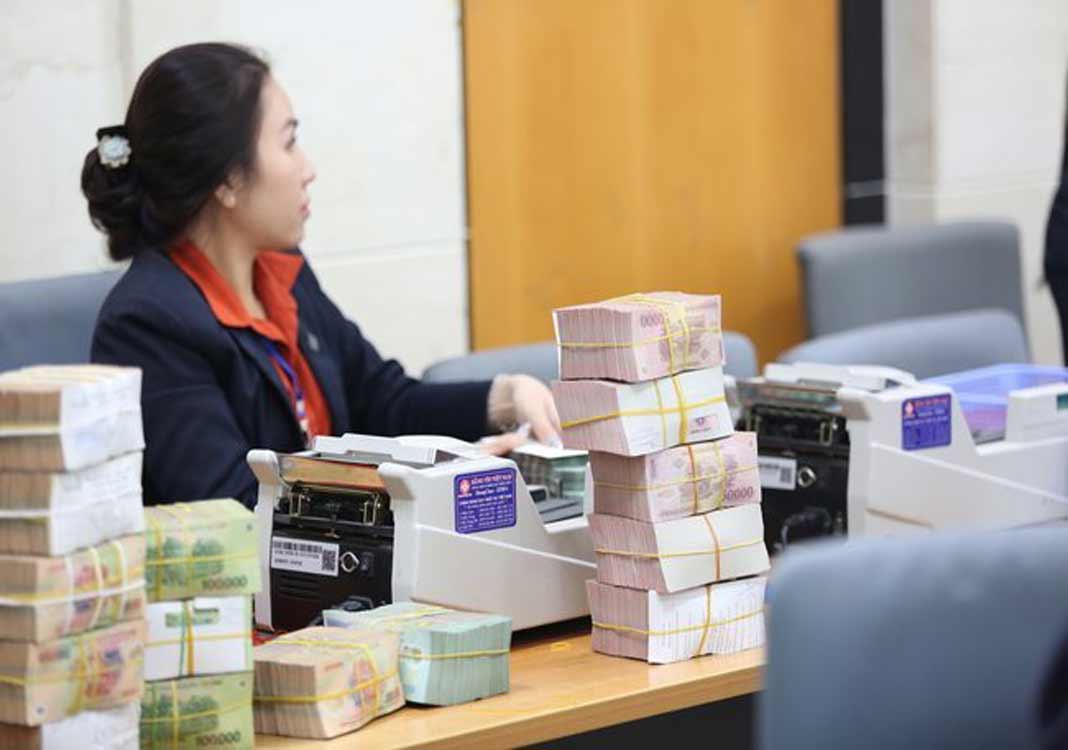HCMC – The U.S. Department of the Treasury has continued not designating Vietnam as a currency manipulator, the State Bank of Vietnam (SBV) said today, November 8.
The SBV, the central bank, said that the U.S. Department of the Treasury highly regarded Vietnam’s monetary and foreign exchange policies. This recognition underscores Vietnam’s commitment to addressing U.S. concerns and maintaining the stability of its financial and monetary markets and macroeconomy amid economic woes.
These announcement comes after the U.S. Treasury published its report assessing the macroeconomic and foreign exchange policies of major trading partners of the U.S. on November 7.
This report placed Vietnam on the U.S. watch list of probable currency manipulators, as the country met two out of three criteria for enhanced analysis during the four quarters through June 2023.
These criteria include trade surplus with the U.S., current account surplus, and persistent one-sided intervention in the foreign currency market.
According to the report, Vietnam’s current account surplus rose to 4.7% of GDP over the four quarters ending in June 2023, exceeding the threshold of 3% of GDP.
This resurgence has raised concerns about currency manipulation, especially following a period of deficits attributed to Covid-19-related production constraints and rising commodity prices. Factors contributing to the surplus include reduced imports, lower exports due to factory adjustments, increased tourism, higher remittances, and reduced corporate profit repatriation.
Over the past five years, Vietnam’s bilateral goods and services surplus with the U.S. has significantly soared, primarily due to growth in merchandise trade, reaching US$105 billion in the four quarters through June 2023 and surpassing the US$15 billion threshold.
Vietnam does not publicly disclose its foreign exchange intervention data, but authorities have provided credible information to the U.S. Treasury. It indicated that net sales of foreign exchange during the same four quarters were equivalent to about 1.45% of GDP, around US$6 billion.
These interventions were driven by pressures related to the Russia-Ukraine conflict, elevated commodity prices, and expectations of Federal Reserve monetary policy tightening. As of mid-2023, Vietnam had rebuilt some of its reserves, with foreign exchange reserves standing at US$89 billion, considered broadly adequate based on the International Monetary Fund’s reserve adequacy metric for floating exchange rate regimes.
Vietnam has maintained a flexible exchange rate policy since January 2016, allowing the dong to float within a fixed trading band against the U.S. dollar. The dong depreciated slightly against the U.S. dollar in 2023, down 3.1% from the beginning of the year through the end of September.
Simultaneously, the dong strengthened against many other regional currencies, registering a 1.7% nominal effective basis appreciation and a 1.2% real effective basis appreciation in 2023.
In accordance with the 2015 Act, the U.S. Department of the Treasury has also established a Monitoring List. Economies are subject to close scrutiny of their currency practices and macroeconomic policies and must remain on the list for at least two consecutive reports.









